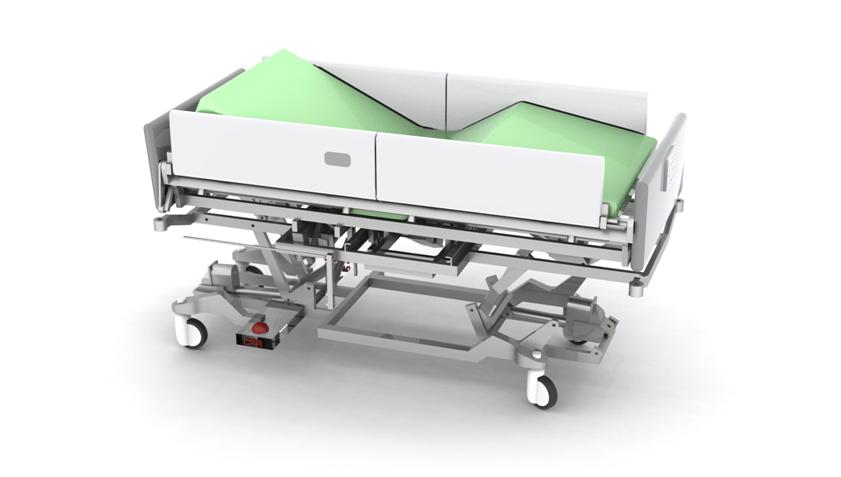Automatic hospital beds to make life easier for hampered patients

Related topics
Innovation SMEs Innovation in SMEs Health, Demographic Change and Wellbeing Germany Italy Poland Portugal Spain United Kingdom Switzerlanddate: 03/12/2013
Project: Demonstration action for an Easy POSitio...
acronym: EPOSBED-DEMO
See also: CORDIS
Contact: Contact
For patients with reduced mobility, one of their greatest frustrations can include spending long amounts of time in bed without the ability to change their positions or even make basic movements. Additionally, nurses and other medical staff can be injured because such patients have to be moved, in order to prevent their health condition from worsening and to make them more comfortable.
A European Union (EU)-funded research project has developed a solution to help patients with their mobility problems, as well as make work easier for care-givers. Known as EPOSBED, the project team – whose 10 partners include eight SMEs – has designed an automated, adjustable bed that allows patients with limited mobility to change their position without needing assistance from medical staff.
EPOSBED uses intelligent software that interprets the patient’s movement – lifting their head or hips, for example – and then automatically moves the bed. Built into the bed’s mattress is a “pressure map” composed of about 1,000 individual sensors that detects the person’s movements in real-time and then smoothly moves the corresponding portions of the mattress?. To stop the bed from moving, the person makes a simple movement in the opposite direction to that he/she triggered to indicate movement in the first place?. The bed can also work with a remote-control device if desired.
“EPOSBED is unique in the way that it interprets the person’s movement intentions, and behaves in response to every movement,” said Óscar Valdemoros of Spain-based Industrias Tobia-Spaldin, the project’s coordinator.
With Europe’s aging population, the number of patients with reduced mobility is growing. At the same time, the average age of hospital personnel is rising, making them more prone to being injured when handling patients. Some 85 percent of nurses have suffered back injuries at some point in their career, costing European hospitals about €6 billion in losses. Both of these trends are driving the demand for “assistive mobility” systems that help patients while allowing nurses to stay in their jobs and professions longer.
The European market for such systems is vast. For hospital specialty beds, annual revenues total about €800 million, with an annual growth rate of 9 percent, asserts SOURCE.
The main potential markets for EPOSBED are public and private hospitals, retirement facilities and private homes.
The EPOSBED technology has been successfully tested with different types of people, of different weights and heights. The project, supported by a EU grant of €1.4 million, is engaged in ongoing efforts to improve the bed’s technology, obtain certifications and apply for patents.
